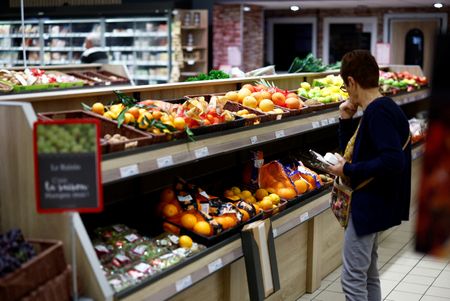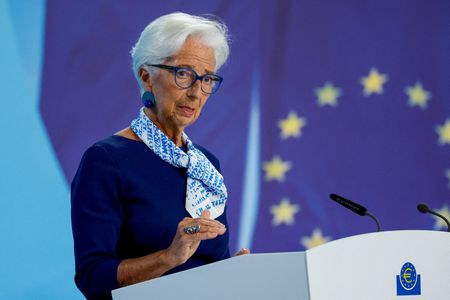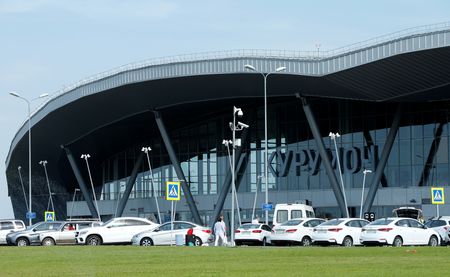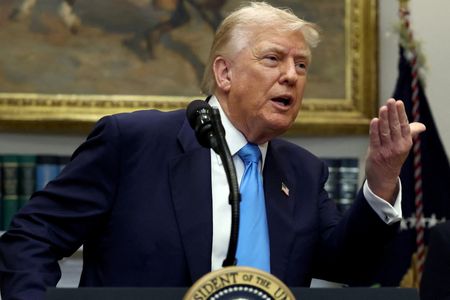By Balazs Koranyi
FRANKFURT (Reuters) -Euro zone inflation held steady at the ECB’s 2% target in July, confirming the bank’s benign view on prices and strengthening the case for policymakers to keep interest rates on hold for some time after rapidly cutting borrowing costs.
The ECB halved its key rate to 2% in the year to June and predicted that inflation would hover near its target over the medium term, reducing the need for further action, even if the outlook was unusually uncertain given trade tensions with the U.S. and geopolitical volatility.
At 2%, inflation was a touch above expectations in a Reuters poll of economists but such a small miss is unlikely to concern policymakers, who are more focused on underlying trends, particularly in services.
Underlying or core inflation, which excludes volatile items like food and fuel, was also steady at 2.3%, as a small slowdown in services price growth to 3.1% from 3.3% was offset by a pick-up in goods inflation, data from Eurostat showed on Friday.
“The latest trade developments and the avoidance of a full-blown trade conflict have alleviated pressure on the ECB to continue cutting rates to support eurozone growth,” ING economist Carsten Brzeski said.
“Add to this the latest weakening of the euro as well as meagre but positive GDP growth in the second quarter and the bar for yet another rate cut this year has clearly risen.”
Financial markets see less than a 50% chance of another rate cut this year, indicating that the bar for policy easing has increased since the EU struck a tentative trade deal with the U.S.
While the agreed 15% tariffs will be negative for growth and reduce price pressures, much of this has been priced into assets and the end of uncertainty will offset some of the negatives.
Extra budget spending from Germany, the bloc’s biggest economy, is also likely to compensate for some of the drag from trade, suggesting that the euro zone’s timid recovery will continue next year, driven mostly by domestic consumption.
Some policymakers, however, fear that trade barriers could be a bigger drag on prices than currently predicted and the ECB could undershoot its target in the coming years, much like it did during the pre-pandemic decade.
Indeed, the bank’s own projections put inflation below 2.0% through 2026 before a rebound, and the bank has repeatedly warned that rising trade barriers could force China to start dumping surplus export goods on the rest of the world, lowering prices.
But economists said there was no evidence for such a trend now.
“Country-level data so far suggest no sign of Chinese goods dumping,” Nomura said in a note. “No Chinese goods dumping is consistent with volumes trade data we have to May that suggest U.S. tariffs have not meaningfully affected European exports to the U.S. or Chinese exports to Europe.”
(Reporting by Balazs Koranyi; Editing by Toby Chopra)











